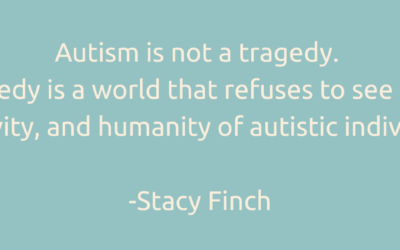“I know what I’m supposed to do, but in the moment, I just can’t” If you’ve ever said this, you’re not alone. As a neurodivergent parent, you’ve probably read about self-regulation strategies, maybe even tried them; breathing exercises, mindfulness apps, grounding...
Autism
What Temple Grandin Taught Me About Supporting Autistic Kids
When my son was first diagnosed with autism, I did what many of us do, I started reading everything I could. One of the first voices that truly resonated with me was Temple Grandin She wasn’t just another expert, she was someone who had lived the experience and...
Parenting While Neurodivergent: Balancing Self-Care and Childcare
Parenting is hard. Parenting while neurodivergent, especially when raising neurodivergent children, adds an entirely new level of complexity. Many autistic or ADHD parents feel constant pressure to “keep up,” even when their own executive functioning, sensory...
Why Autistic Adults Seek Therapy (And What Actually Helps)
More and more autistic adults are exploring therapy, not because they’re broken or need to be “fixed,” but because they want to feel more understood, regulated, and connected in a world that often wasn’t built for them. Whether you’re newly diagnosed, self-diagnosed,...
How to Find a Neurodiversity-Affirming Therapist
Finding a therapist can be hard. If you are autistic or neurodivergent (ND), it can feel even harder. You might wonder if your therapist will understand you, support you, or judge you. That’s why it’s so important to find someone who is neurodiversity-affirming. What...
Autistic People Are Not a Burden: A Response to RFK Jr.’s Harmful Comments
In a recent interview, Robert F. Kennedy Jr. made deeply troubling remarks about autistic individuals, suggesting they "will never work, they will never pay taxes, and they will never serve in the military or contribute to society." As a therapist, advocate, and...
Autism Prevalence is Rising: Here’s What That Really Means
You may have seen headlines recently stating that autism rates are increasing. The CDC now estimates that 1 in 30 children are diagnosed with autism spectrum disorder (ASD), up from 1 in 35 just a few years ago. Understandably, these numbers might feel startling to...
A Mindful Approach to the New Year: Setting Neuroaffirming and Achievable Intentions
The new year often brings a rush of resolutions, grand plans, and “new year, new me” mantras. While some people find joy and motivation in setting goals at this time, others—myself included—may feel overwhelmed by the pressure to transform overnight. If you're not a...
A Winter Holiday Guide: Thoughtful Support for Neurodivergent Families
Created by Stacy @ stacyfinch.com & Adrianne @ discoverautism.ca The holidays are full of potential for connection, joy, and, let’s face it, some chaos. For families with neurodivergent children, the season can bring extra challenges. Bright lights, noisy...
Winter Holiday Survival Guide: Tips for Parents of Neurodivergent Children
Created by Stacy @ stacyfinch.com & Adrianne @ discoverautism.ca The winter holidays are a time of warmth, wonder—and, let’s be honest, a little chaos. For parents of neurodivergent children, the season often comes with unique challenges. The bright lights,...










